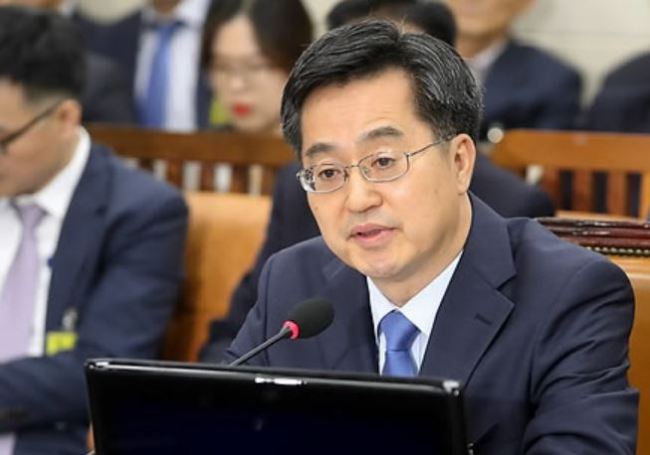Finance minister cautiously upbeat about 2018 economic growth
By YonhapPublished : Dec. 22, 2017 - 11:11
South Korea's chief economic policymaker has said the South Korean economy will see solid growth in 2018, but there are still headwinds.
"The global economy is expected to remain strong, but at the same there are unfavorable external factors, such as trade protectionism and rate hikes," Finance Minister Kim Dong-yeon said in a press meeting Thursday. "We also have many things to do for job creation, and that's the top priority of next year's economic policy."
Asia's fourth-largest economy is expected to pull off slightly over 3 percent growth this year, which is close to its potential economic growth rate on the back of stellar exports and other favorable global trade conditions.
Next year, the economy is expected to expand at a similar rate although there are some protracting risks, including widening trade protectionism and monetary normalization in the United States that may weigh down the economy next year, as well as issues like South Korea's low birthrate and household debt.

The Bank of Korea raised the key rate by a quarter percentage point to 1.5 percent last month for the first time in 6 1/2 years, citing favorable economic conditions and low inflation pressure.
The South Korean economy grew 1.5 percent in the third quarter of this year from a quarter earlier thanks to brisk overseas sales, raising hopes that the economy will easily meet the target growth of 3 percent for 2017.
The finance minister stressed that next year's economic policy will center on creating more jobs, boosting innovative growth and tackling chronic problems, such as the low birthrate.
"What's more important is the quality of economic growth. Economic expansion should be shared (by all economic agents), and in that context, income polarization and related issues should be resolved. Sustainable economic growth is impossible unless such things are addressed," Kim said.
The minister also downplayed worries that a recent hike in the corporate income tax would reduce local companies' competitiveness.
Earlier this month, the National Assembly approved a bill that will increase the highest tax rate to 25 percent on corporations with taxable income exceeding 300 billion won ($277 million), which is in contrast to the US Congress' passage of a tax revamp, which cuts the corporate tax rate to 21 percent.
"Some 70 companies are subject to the highest tax bracket, and corporate activities are affected by a variety of factors, such as regulations, not just by corporate taxes," Kim said.
The finance minister expects South Korea could be taken off a European Union list of 17 non-cooperative tax jurisdictions in January at the earliest.
The list includes South Korea, Macau and the Marshall Islands. The EU said South Korea has "harmful preferential tax regimes" and did not commit to amending or abolishing them by this month. (Yonhap)







![[KH Explains] Hyundai's full hybrid edge to pay off amid slow transition to pure EVs](http://res.heraldm.com/phpwas/restmb_idxmake.php?idx=644&simg=/content/image/2024/04/18/20240418050645_0.jpg&u=20240419100350)







![[From the Scene] Monks, Buddhists hail return of remains of Buddhas](http://res.heraldm.com/phpwas/restmb_idxmake.php?idx=652&simg=/content/image/2024/04/19/20240419050617_0.jpg&u=20240419175937)

![[KH Explains] Hyundai's full hybrid edge to pay off amid slow transition to pure EVs](http://res.heraldm.com/phpwas/restmb_idxmake.php?idx=652&simg=/content/image/2024/04/18/20240418050645_0.jpg&u=20240419100350)

![[Today’s K-pop] Illit drops debut single remix](http://res.heraldm.com/phpwas/restmb_idxmake.php?idx=642&simg=/content/image/2024/04/19/20240419050612_0.jpg&u=)